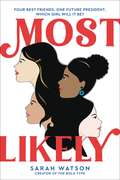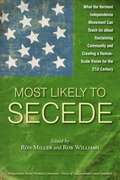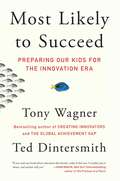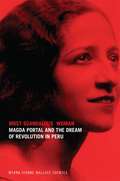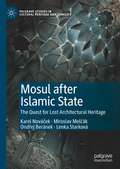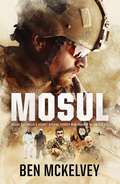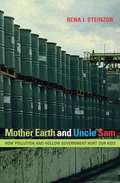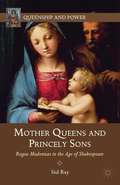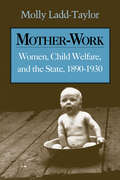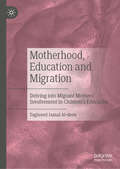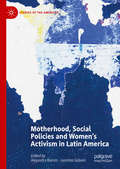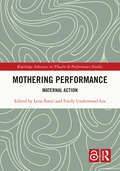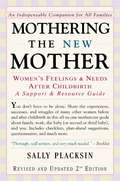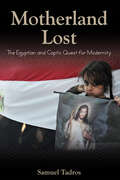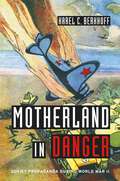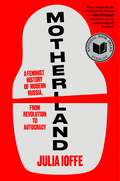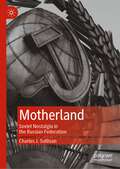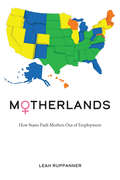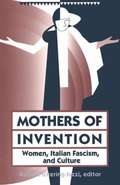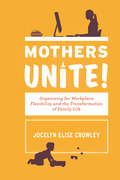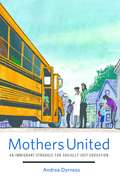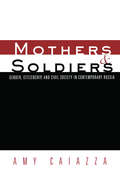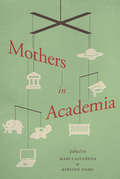- Table View
- List View
Most Likely
by Sarah WatsonFrom the creator of the hit TV series The Bold Type comes an empowering and heartfelt novel about a future female president's senior year of high school. Ava, CJ, Jordan, and Martha (listed in alphabetical order out of fairness) have been friends since kindergarten. Now they're in their senior year, facing their biggest fears about growing up and growing apart. But there's more than just college on the horizon. One of these girls is destined to become the president of the United States. The mystery, of course, is which girl gets the gig. Is it Ava, the picture-perfect artist who's secretly struggling to figure out where she belongs? Or could it be CJ, the one who's got everything figured out...except how to fix her terrible SAT scores? Maybe it's Jordan, the group's resident journalist, who knows she's ready for more than their small Ohio suburb can offer. And don't overlook Martha, who will have to overcome all the obstacles that stand in the way of her dreams. This is the story of four best friends who have one another's backs through every new love, breakup, stumble, and success--proving that great friendships can help young women achieve anything...even a seat in the Oval Office.
Most Likely to Secede: What the Vermont Independence Movement Can Teach Us About Reclaiming Community and Creating a Human Scale Vision for the 21st Century
by Rob Williams Ron MillerThe 21st century United States is no longer a functioning republic, but an unreformable Empire unresponsive to the needs and concerns of its own citizens. Most Likely To Secede features a collection of provocative and forward-thinking essays from 29 contributors to Vermont Commons: Voices of Independence news journal. Written by cutting-edge citizens and entrepreneurs, the essays call for economic relocalization and political independence for Vermont, and, in some cases, nonviolent secession of the state (once its own 18th century republic) from the U.S. of Empire and the peaceful dissolution of the United States as a whole. Exploring well beyond the media-manufactured boundaries of Left and Right, Most Likely To Secede advocates for a 21st century world in which collective decisions about finance, fuel, food, and culture are removed from a centralized corporate imperial United States, and returned to regional and local control. As the only state to once exist as its own republic, Vermont is uniquely poised to lead a national conversation on 21st century decentralization, and Most Likely To Secede shows us the way.
Most Likely to Succeed
by Tony Wagner Ted DintersmithFrom two leading experts in education and entrepreneurship, an urgent call for the radical re-imagining of American education so that we better equip students for the realities of the twenty-first century economy.Today more than ever, we prize academic achievement, pressuring our children to get into the "right" colleges, have the highest GPAs, and pursue advanced degrees. But while students may graduate with credentials, by and large they lack the competencies needed to be thoughtful, engaged citizens and to get good jobs in our rapidly evolving economy. Our school system was engineered a century ago to produce a work force for a world that no longer exists. Alarmingly, our methods of schooling crush the creativity and initiative young people need to thrive in the twenty-first century. In Most Likely to Succeed, bestselling author and education expert Tony Wagner and venture capitalist Ted Dintersmith call for a complete overhaul of the function and focus of American schools, sharing insights and stories from the front lines, including profiles of successful students, teachers, parents, and business leaders. Most Likely to Succeed presents a new vision of American education, one that puts wonder, creativity, and initiative at the very heart of the learning process and prepares students for today's economy. This book offers parents and educators a crucial guide to getting the best for their children and a roadmap for policymakers and opinion leaders.
Most Scandalous Woman: Magda Portal and the Dream of Revolution in Peru
by Myrna Ivonne Wallace FuentesIn 1926 a young Peruvian woman picked up a gun, wrested her infant daughter from her husband, and liberated herself from the constraints of a patriarchal society. Magda Portal, a poet and journalist, would become one of Latin America’s most successful and controversial politicians. In this richly nuanced portrayal of Portal, historian Myrna Ivonne Wallace Fuentes chronicles the dramatic rise and fall of this prominent twentieth-century revolutionary within the broader history of leftist movements, gender politics, and literary modernism in Latin America. <p><p> An early member of bohemian circles in Lima, La Paz, and Mexico City, Portal distinguished herself as the sole female founder of the American Popular Revolutionary Alliance (APRA). A leftist but non-Communist movement, APRA would dominate Peru’s politics for five decades. Through close analysis of primary sources, including Portal’s own poetry, correspondence, and other writings, Most Scandalous Woman illuminates Portal’s pivotal work in creating and leading APRA during its first twenty years, as well as her efforts to mobilize women as active participants in political and social change. Despite her successes, Portal broke with APRA in 1950 under bitter circumstances. Wallace Fuentes analyzes how sexism in politics interfered with Portal’s political ambitions, explores her relationships with family members and male peers, and discusses the ramifications of her scandalous love life. <p> In charting the complex trajectory of Portal’s life and career, Most Scandalous Woman reveals what moves people to become revolutionaries, and the gendered limitations of their revolutionary alliances, in an engrossing narrative that brings to life Latin American revolutionary politics.
Most Secret War (Penguin World War II Collection)
by R.V. JonesReginald Jones was nothing less than a genius. And his appointment to the Intelligence Section of Britain's Air Ministry in 1939 led to some of the most astonishing scientific and technological breakthroughs of the Second World War.In Most Secret War he details how Britain stealthily stole the war from under the Germans' noses by outsmarting their intelligence at every turn. He tells of the 'battle of the beams'; detecting and defeating flying bombs; using chaff to confuse radar; and many other ingenious ideas and devices.Jones was the man with the plan to save Britain and his story makes for riveting reading.--'This is without question the most fascinating book about WW2 that I have ever read' 5 **** Reader Review'I am glad I bought this book and I can recommend it to anybody who wants a highly readable account with plenty of detail' 5 **** Reader Review'Such a great story with so many things you wouldn't expect. A very compelling read that holds your attention' 5 **** Reader Review
Mosul after Islamic State: The Quest for Lost Architectural Heritage (Palgrave Studies in Cultural Heritage and Conflict)
by Ondřej Beránek Karel Nováček Miroslav Melčák Lenka StarkováThe book examines the destruction of the architectural heritage in Mosul perpetrated by Islamic State between 2014 and 2017. It identifies which structures were attacked, the ideological rationale behind the destruction, and the significance of the lost monuments in the context of Mosul’s urban development and the architectural history of the Middle East. This methodologically innovative work fills an important gap in the study of both current radical movements and the medieval Islamic architecture of Northern Iraq.
Mosul: Australia's secret war inside the ISIS caliphate
by Ben MckelveyFrom the best-selling author of The Commando and Born to Fight comes a fascinating investigation of modern warfare that combines methodical research and the fast-paced action of battle with the personal stories of the combatants on both sides of the line.Taking us from the suburbs of western Sydney and Australia's military army bases, to the battlefields of Afghanistan and Iraq, this is a remarkable book that reveals the as-yet untold story of the battle for Mosul and the secret involvement of Australians on both sides of the war - both our Commandos and Australian ISIS fighters.Mosul details the rise of ISIS influence in Australia, the Iran and Australia allegiance to fight Daesh and shows what led up to the battle and the ramifications that are still being felt at home - by our soldiers and the victims of that war.Ben Mckelvey has extraordinary access to SOOCOMD/2COMMANDO units - the most decorated modern Australian fighting unit; ISOF - Iraq's premier fighters; Yazidis women who had been slaves of ISIS; returned Commandos and their devastated families, and explains how petty criminals in Western Sydney became some of our worst jihadists who took their families to Iraq to fight for ISIS. Focusing on the stories of key figures like 2 Commando's Ian Turner and one of Australia's most infamous Jihadist, Khaled Sharrouf, Mckelvey takes us the heart of this brutal battle and brings history to life in an honest, thoughtful and compelling examination of modern warfare.A must-read for anyone interested in modern military history.
Mosul: Australia's secret war inside the ISIS caliphate
by Ben MckelveyFrom the best-selling author of The Commando and Born to Fight comes a fascinating investigation of modern warfare that combines methodical research and the fast-paced action of battle with the personal stories of the combatants on both sides of the line.Taking us from the suburbs of western Sydney and Australia's military army bases, to the battlefields of Afghanistan and Iraq, this is a remarkable book that reveals the as-yet untold story of the battle for Mosul and the secret involvement of Australians on both sides of the war - both our Commandos and Australian ISIS fighters.Mosul details the rise of ISIS influence in Australia, the Iran and Australia allegiance to fight Daesh and shows what led up to the battle and the ramifications that are still being felt at home - by our soldiers and the victims of that war.Ben Mckelvey has extraordinary access to SOOCOMD/2COMMANDO units - the most decorated modern Australian fighting unit; ISOF - Iraq's premier fighters; Yazidis women who had been slaves of ISIS; returned Commandos and their devastated families, and explains how petty criminals in Western Sydney became some of our worst jihadists who took their families to Iraq to fight for ISIS. Focusing on the stories of key figures like 2 Commando's Ian Turner and one of Australia's most infamous Jihadist, Khaled Sharrouf, Mckelvey takes us the heart of this brutal battle and brings history to life in an honest, thoughtful and compelling examination of modern warfare.A must-read for anyone interested in modern military history.
Mother Earth and Uncle Sam
by Rena I. SteinzorIn this compelling study, Rena Steinzor highlights the ways in which the government, over the past twenty years, has failed to protect children from harm caused by toxic chemicals. She believes these failures--under-funding, excessive and misguided use of cost/benefit analysis, distortion of science, and devolution of regulatory authority--have produced a situation in which harm that could be reduced or eliminated instead persists. Steinzor states that, as a society, we are neglecting our children's health to an extent that we would find unthinkable as individual parents, primarily due to the erosion of the government's role in protecting public health and the environment. At this pace, she asserts, our children will inherit a planet under grave threat. We can arrest these developments if a critical mass of Americans become convinced that these problems are urgent and the solutions are near at hand. By focusing on three specific case studies--mercury contamination through the human food chain, perchlorate (rocket fuel) in drinking water, and the effects of ozone (smog) on children playing outdoors--Steinzor creates an analysis grounded in law, economics, and science to prove her assertions about the existing dysfunctional system. Steinzor then recommends a concise and realistic series of reforms that could reverse these detrimental trends and serve as a blueprint for restoring effective governmental intervention. She argues that these recommendations offer enough material to guide government officials and advocacy groups toward prompt implementation, for the sake of America's--and the world's--future generations.
Mother Queens And Princely Sons
by Sid RayThis study explores representations of the Madonna and Child in early modern culture. It considers the mother and son as a conceptual, religio-political unit and examines the ways in which that unit was embodied and performed. Of primary interest is the way mothers derived agency from bearing incipient rulers. By focusing on agency and authority, the book traces a pattern between the symbiotic unity of Madonna and Child and other influential, dimorphic concepts, what author Sid Ray calls 'accolated bodies, ' in early modern thought: the king's two bodies, marital coverture, and the doctrine of the hypostatic union of man and God in Christ, each with its variation on how the two bodies in question share authority. Attuned to Catholic historical and cultural reverberations of the Madonna and Child and debates about the origins of power, this book reassesses the mother-son unit, focusing on its inversion of conventional gender roles and potential to destabilize and redefine the ways in which gender and power operate. Ultimately, the book argues that representations of the mother-son unit contested Protestant patriarchal authority by offering meritocratic and egalitarian alternatives to established models of governance.
Mother-Work: Women, Child Welfare, and the State, 1890-1930 (Women, Gender, and Sexuality in American History)
by Molly Ladd-TaylorEarly in the twentieth century, maternal and child welfare evolved from a private family responsibility into a matter of national policy. Molly Ladd-Taylor explores both the private and public aspects of child-rearing, using the relationship between them to cast new light on the histories of motherhood, the welfare state, and women's activism in the United States. Ladd-Taylor argues that mother-work, "women's unpaid work of reproduction and caregiving," motivated women's public activism and "maternalist" ideology. Mothering experiences led women to become active in the development of public health, education, and welfare services. In turn, the advent of these services altered mothering in many ways, including the reduction of the infant mortality rate.
Motherhood, Education and Migration: Delving into Migrant Mothers’ Involvement in Children’s Education
by Taghreed Jamal Al-deenThis book draws together analysis of class, gender, ethnicity and processes of migration in the context of family-school relationships. It provides an original analysis of the role of class as gendered and ethnicised in the explanation of the reproduction of educational inequalities. This book’s analysis of class is developed through insights into how class, gender, ethnicity and religion are interrelated and connected to patterns of advantages and disadvantages in transnational flows. It explores parental involvement in children’s education in the migratory context as a key site for the analysis of social class positioning and repositioning, focusing on a group of migrant Muslim mothers living in Australia. This book sheds lights on the interconnection of class, gender, ethnicity and religion embedded in migrant mothers’ lives and the roles of these facets in regard to the education of their children. Delving into Muslim migrant mothers’ practices and beliefs concerning their involvement provides new understanding of how support of children’s education is shaped by the process of migration along with the neoliberal reforms of education systems and in particular repositioning of social class.
Motherhood, Social Policies and Women's Activism in Latin America (Studies of the Americas)
by Jasmine Gideon Alejandra RammThis book is a critical resource for understanding the relationship between gender, social policy and women’s activism in Latin America, with specific reference to Chile. Latin America’s mother-centered kinship system makes it an ideal field in which to study motherhood and maternalism—the ways in which motherhood becomes a public policy issue. As maternalism embraces and enhances gender differences, it has been criticized for deepening gender inequalities. Yet invoking motherhood continues to offer an effective strategy for advancing women’s living conditions and rights, and for women themselves to be present in the public sphere. In analyzing these important relationships, the contributors to this volume discuss maternal health, sexual and reproductive rights, labor programs, paid employment, women miners’ unionization, housing policies, environmental suffering, and LGBTQ intimate partner violence.
Mothering Performance: Maternal Action (Routledge Advances in Theatre & Performance Studies)
by Lena Šimić Emily Underwood-LeeMothering Performance is a combination of scholarly essays and creative responses which focus on maternal performance and its applications from a variety of interdisciplinary perspectives. This collection extends the concept and action of ‘performance’ and connects it to the idea of ‘mothering’ as activity. Mothering, as a form of doing, is a site of never-ending political and personal production; it is situated in a specific place, and it is undertaken by specific bodies, marked by experience and context. The authors explore the potential of a maternal sensibility to move us towards maternal action that is explicitly political, ethical, and in relation to our others. Presented in three sections, Exchange, Practice, and Solidarity, the book includes international contributions from scholars and artists covering topics including ecology, migration, race, class, history, incarceration, mental health, domestic violence, intergenerational exchange, childcare, and peacebuilding. The collection gathers diverse maternal performance practices and methodologies which address aesthetics, dramaturgy, activism, pregnancy, everyday mothering, and menopause. The book is a great read for artists, maternal health and care professionals, and scholars. Researchers with an interest in feminist performance and motherhood, within the disciplines of performance studies, maternal studies, and women’s studies, and all those who wish to gain a deeper understanding of maternal experience, will find much of interest.
Mothering The New Mother: Women's Feelings And Needs After Childbirth - A Support And Resource Guide (Parenting Guides)
by Sally PlacksinFor the expectant and new mom, freshly updated and designed, this acclaimed all-in-one support guide focuses on all aspects of the postpartum experience. The nine chapters in this comprehensive guide include resources, networks, information, stories, and advice to nurture, validate, and empower the new mother, whether she is having her first baby or her third. Among the subjects covered are: what to expect when you go home; what is this period called "postpartum" and how long does it last; where to find breastfeeding help; how to ask for help; homecare options; what are realistic going-back-to-work options; how to relieve the isolation of at-home mothers; what to say (and not to say) to family members. Drawn from three years of research and the author's own experience, each chapter is filled with the practical suggestions and hands-on solutions provided by doctors, nurses, midwives, other caregivers, policymakers, and over 100 new mothers. Also included are many real-life stories told by women in their own voices; checklists; a prenatal and postpartum questionnaire to help assess and plan needs; reading lists; resource listings; and a separate chapter for second-, third-, or more-time moms.
Motherland Lost: The Egyptian and Coptic Quest for Modernity
by Samuel TadrosSamuel Tadros provides a clear understanding of Copts—the native Egyptian Christians—and their crisis of modernity in conjunction with the overall developments in Egypt as it faced its own struggles with modernity. He argues that the modern plight of Copts is inseparable from the crisis of modernity and the answers developed to address that crisis by the Egyptian state and intellectuals, as well as by the Coptic Church and laypeople.
Motherland in Danger
by Karel C. BerkhoffMuch of the story about the Soviet Union’s victory over Nazi Germany has yet to be told. In Motherland in Danger, Karel Berkhoff addresses one of the most neglected questions facing historians of the Second World War: how did the Soviet leadership sell the campaign against the Germans to the people on the home front? For Stalin, the obstacles were manifold. Repelling the German invasion would require a mobilization so large that it would test the limits of the Soviet state. Could the UR marshal the manpower necessary to face the threat? How could the authorities overcome inadequate infrastructure and supplies? Might Stalin’s regime fail to survive a sustained conflict with the Germans? Motherland in Danger takes us inside the Stalinist state to witness, from up close, its propaganda machine. Using sources in many languages, including memoirs and documents of the Soviet censor, Berkhoff explores how the Soviet media reflected-and distorted-every aspect of the war, from the successes and blunders on the front lines to the institution of forced labor on farm fields and factory floors. He also details the media’s handling of Nazi atrocities and the Holocaust, as well as its stinting treatment of the Allies, particularly the United States, the UK, and Poland. Berkhoff demonstrates not only that propaganda was critical to the Soviet war effort but also that it has colored perceptions of the war to the present day, both inside and outside of Russia.
Motherland: A Feminist History of Modern Russia, from Revolution to Autocracy
by Julia IoffeFINALIST FOR THE NATIONAL BOOK AWARDAcclaimed journalist Julia Ioffe tells the story of modern Russia through the history of its women, from revolution to utopia to autocracy.In 1990, seven-year-old Julia Ioffe and her family fled the Soviet Union. Nearly twenty years later, Ioffe returned to Moscow—only to discover just how much Russian society had changed while she had been living in America. The Soviet women she had known growing up—doctors, engineers, scientists—seemed to have been replaced by women desperate to marry rich and become stay-at-home moms. How had Russia gone from portraying itself as the vanguard of world feminism to becoming a bastion of conservative Christian values?In Motherland, Ioffe turns modern Russian history on its head, telling it exclusively through the stories of its women. From her own physician great-grandmothers to Lenin’s lover, a feminist revolutionary; from the hundreds of thousands of Soviet girls who fought in World War II to the millions of single mothers who rebuilt and repopulated a devastated country; from the members of Pussy Riot to Yulia Navalnaya, the wife of opposition leader Alexey Navalny, Ioffe chronicles one of the most audacious social experiments in history and documents how it failed the very women it was meant to liberate—and how that failure paved the way for the revanche of Vladimir Putin.Part memoir, part journalistic exploration, part history, Motherland paints a portrait of modern Russia through the women who shaped it. With deep emotion, Ioffe reveals what it means to live through the cataclysms of revolution, war, idealism, and heartbreak—and how the story of Russia today is inextricably tied to the sacrifices of its women.
Motherland: Soviet Nostalgia in the Russian Federation
by Charles J. SullivanThis book explores the extent to which and the reasons why Russia’s citizens harbor feelings of nostalgia for the Soviet Union today. Based on the results of a nationwide survey and rigorous field research carried out within several of Russia’s regions, Dr. Sullivan uncovers material and cultural rationales for this sentiment of nostalgia – which poses both an opportunity and a challenge to the Russian government. With Russian nationalism and revanchism a resurgent force in contemporary global affairs, this detailed study will interest scholars of international relations and of populist authoritarianism around the world.
Motherlands: How States Push Mothers Out of Employment
by Leah RuppannerIn the absence of federal legislation, each state in the United States has its own policies regarding family leave, job protection for women and childcare. No wonder working mothers encounter such a significant disparity when it comes to childcare resources in America! Whereas conservative states like Nebraska offer affordable, readily available, and high quality childcare, progressive states that advocate for women’s economic and political power, like California, have expensive childcare, shorter school days, and mothers who are more likely to work part-time or drop out of the labor market altogether to be available for their children. In Motherlands, Leah Ruppanner cogently argues that states should look to each other to fill their policy voids. She provides suggestions and solutions for policy makers interested in supporting working families. Whether a woman lives in a state with stronger childcare or gender empowerment regimes, at stake is mothers’ financial dependence on their partners. Ruppanner advocates for reducing the institutional barriers mothers face when re-entering the workforce. As a result, women would have greater autonomy in making employment decisions following childbirth.
Mothers Of Invention: Women, Italian Fascism, And Culture
by Robin Pickering-IazziMothers Of Invention: Women, Italian Fascism, And Culture
Mothers Unite!: Organizing for Workplace Flexibility and the Transformation of Family Life
by Jocelyn Elise CrowleyIn Mothers Unite!, a bold and hopeful new rallying cry for changing the relationship between home and the workplace, Jocelyn Elise Crowley envisions a genuine, universal world of workplace flexibility that helps mothers who stay at home, those who work part time, and those who work full time balance their commitments to their jobs and their families. Achieving this goal, she argues, will require a broad-based movement that harnesses the energy of existing organizations of mothers that already support workplace flexibility in their own ways.Crowley examines the efforts of five diverse national mothers' organizations: Mocha Moms, which aims to assist mothers of color; Mothers of Preschoolers (MOPS), which stresses the promotion of Christian values; Mothers & More, which emphasizes support for those moving in and out of the paid workforce; MomsRising, which focuses on online political advocacy; and the National Association of Mothers' Centers (NAMC), which highlights community-based networking. After providing an engaging and detailed account of the history, membership profiles, strategies, and successes of each of these organizations, Crowley suggests actions that will allow greater workplace flexibility to become a viable reality and points to many opportunities to promote intergroup mobilization and unite mothers once and for all.
Mothers United: An Immigrant Struggle for Socially Just Education
by Andrea DyrnessIn urban American school systems, the children of recent immigrants and low-income parents of color disproportionately suffer from overcrowded classrooms, lack of access to educational resources, and underqualified teachers. The challenges posed by these problems demand creative solutions that must often begin with parental intervention. But how can parents without college educations, American citizenship, English literacy skills, or economic stability organize to initiate change on behalf of their children and their community? In Mothers United, Andrea Dyrness chronicles the experiences of five Latina immigrant mothers in Oakland, California—one of the most troubled urban school districts in the country—as they become informed and engaged advocates for their children&’s education. These women, who called themselves &“Madres Unidas&” (&“Mothers United&”), joined a neighborhood group of teachers and parents to plan a new, small, and autonomous neighborhood-based school to replace the overcrowded Whitman School. Collaborating with the author, among others, to conduct interviews and focus groups with teachers, parents, and students, these mothers moved from isolation and marginality to take on unfamiliar roles as researchers and community activists while facing resistance from within the local school district. Mothers United illuminates the mothers&’ journey to create their own space—centered around the kitchen table—that enhanced their capacity to improve their children&’s lives. At the same time, Dyrness critiques how community organizers, teachers, and educational policy makers, despite their democratic rhetoric, repeatedly asserted their right as &“experts,&” reproducing the injustice they hoped to overcome. A powerful, inspiring story about self-learning, consciousness-raising, and empowerment, Mothers United offers important lessons for school reform movements everywhere.
Mothers and Soldiers: Gender, Citizenship, and Civil Society in Contemporary Russia (Women and Politics)
by Amy CaiazzaAs the Soviet communist regime gave way to democracy, the emergence of an entirely new political and social landscape had the potential to turn Russian society upside down. In Mothers and Soldiers: Organizing Men and Women in 1990s Russia, Amy Caiazza looks at the effects of this seismic change on gender roles, and specifically the role of women in a newly democratic Russia. By observing through a gendered lens institutions like the military, and the process of making public policy, Caiazza finds that despite the institutional disruption, the pattern of gender role ideologies maintained continuity from the former times while at the same time embracing aspects of Western feminism.
Mothers in Academia
by Kirsten Isgro Mari CastanedaFeaturing forthright testimonials by women who are or have been mothers as undergraduates, graduate students, academic staff, administrators, and professors, Mothers in Academia intimately portrays the experiences of women at various stages of motherhood while theoretically and empirically considering the conditions of working motherhood as academic life has become more laborious. As higher learning institutions have moved toward more corporate-based models of teaching, immense structural and cultural changes have transformed women's academic lives and, by extension, their families. Hoping to push reform as well as build recognition and a sense of community, this collection offers several potential solutions for integrating female scholars more wholly into academic life. Essays also reveal the often stark differences between women's encounters with the academy and the disparities among various ranks of women working in academia. Contributors—including many women of color—call attention to tokenism, scarce valuable networks, and the persistent burden to prove academic credentials. They also explore gendered parenting within the contexts of colonialism, racism, sexism, ethnocentrism, ageism, and heterosexism.
